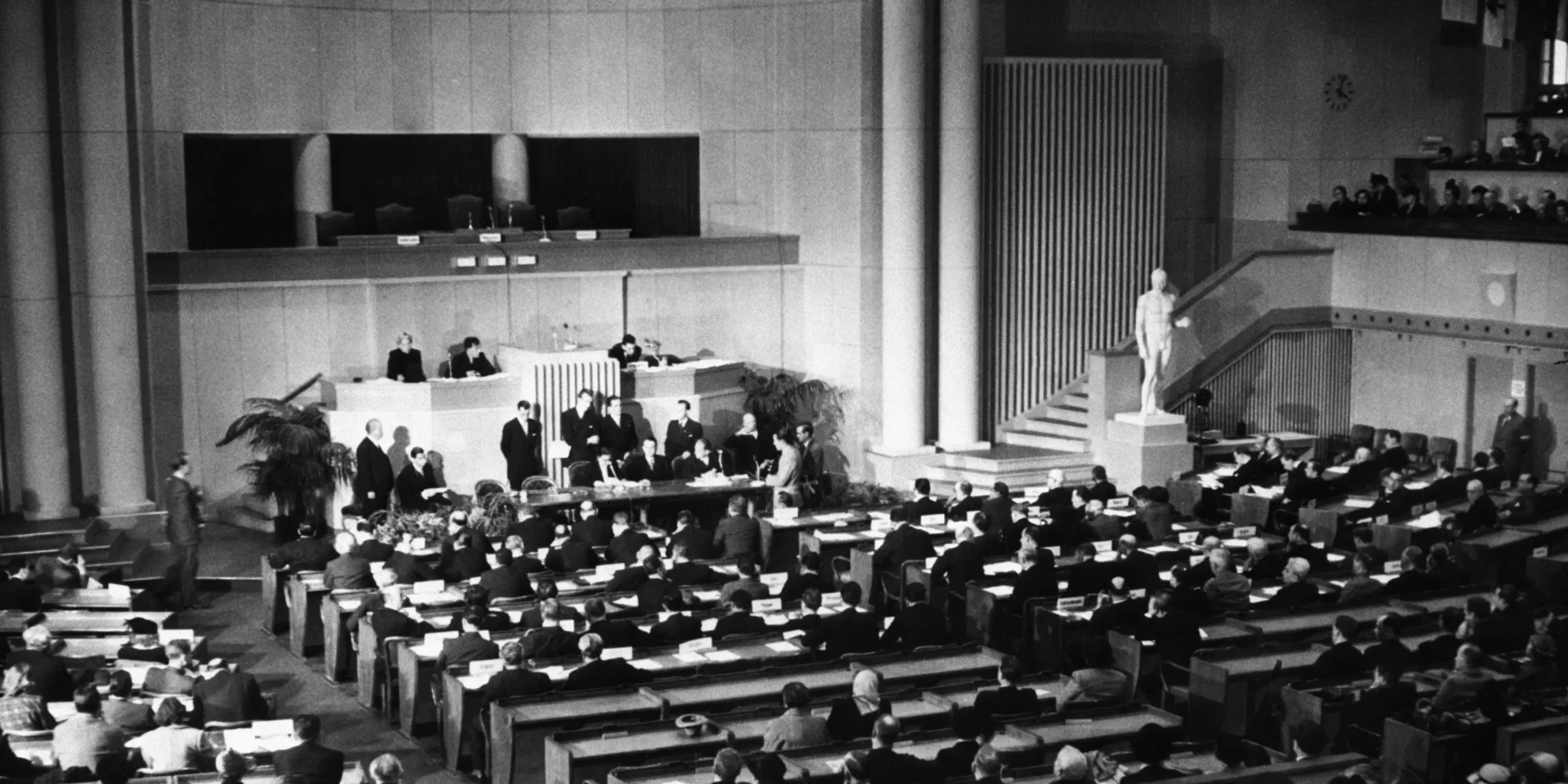Imagine a world where war knows no bounds, where human suffering is unlimited and cruelty has no end. Fortunately, there is international humanitarian law — a set of rules that seeks to limit the consequences of armed conflict. It protects those who do not take part in hostilities (civilians, medical personnel, humanitarian workers) and limits the means and methods of warfare.
The Geneva Conventions relative to the Protection of War Victims were adopted on 12 August 1949 and entered into force on 21 October 1950. On this occasion, we are explaining what humanitarian law is and why everyone should know about it.
In 1949, four important agreements were adopted in Geneva to protect people in time of war. They are called the Geneva Conventions. Here’s what they are about:
- The first convention is to help wounded and sick soldiers on the battlefield. They need to be treated and no one has the right to hurt them.
- The Second Convention: the same as the first, but for seafarers injured in a battle at sea.
- The third convention protects prisoners of war. They cannot be killed or tortured, and must be treated humanely.
- The Fourth Convention protects civilians in time of war. They must not be killed, injured, their homes destroyed or their property stolen.
Read also: Assistance for humanitarian organisations: what is Building Block and how it works
What is humanitarian law?
International humanitarian law is based on the principles of humanity and necessity. The principle of humanity requires alleviating the suffering of war victims and protecting human dignity. The principle of necessity restricts the belligerents in the choice of means and methods of warfare, prohibiting anything that is not necessary to achieve military objectives.
The main sources of international humanitarian law are the Geneva Conventions of 1949 and their Additional Protocols. These documents establish the rules for the treatment of the wounded, sick, prisoners of war, and civilians in the occupied territories, and prohibit the use of certain types of weapons.
Read also: Humanitarian Needs of Frontline Communities: Survey Results
How does humanitarian law work in the world?
International humanitarian law (IHL) was created to reduce human suffering in times of war. Its rules should apply in any war, regardless of who is fighting, where they are fighting or why they are fighting. All parties to a conflict — both states and various armed groups — must abide by these rules.
Unfortunately, IHL does not always work as it should. It often happens that those at war simply do not know these rules or deliberately ignore them. As a result, people continue to suffer, even though it could have been avoided.
Various mechanisms exist to ensure compliance with humanitarian law. The International Committee of the Red Cross (ICRC) has a key role to play in promoting and monitoring compliance with humanitarian law. It has the right of access to places of detention, should provide assistance to victims of conflicts and facilitate dialogue between the parties.
States are also responsible for observing and enforcing humanitarian law. They are obliged to investigate violations and bring perpetrators to justice. International judicial bodies, such as the International Criminal Court, can also try war crimes cases.
Read also: Preparation of frontline areas for winter: international humanitarian aid
Why is humanitarian law important for the average person?
Even if you are not in the military and do not live in a war zone, international humanitarian law still matters to you. It must protect fundamental human rights in times of war, limit suffering and promote human dignity.
In the event of an armed conflict, humanitarian law guarantees you protection from attack if you are not taking part in hostilities. It also ensures access to medical care, food and water.
In addition, humanitarian law is designed to limit the consequences of conflicts on the basis of humanity. However, the mechanism of its application does not always work perfectly, in particular because the parties to the conflict are not sufficiently aware of its norms or ignore them.
Read also: Presentation of the Prioritization System Concept in Humanitarian De-mining by the Deputy Minister of Economy of Ukraine
How does humanitarian law work in Ukraine?
Ukraine is a party to the Geneva Conventions and their Additional Protocols. This means that Ukraine is obliged to comply with humanitarian law in any armed conflict.
Unfortunately, the war in Ukraine has led to numerous violations of humanitarian law. The civilian population is suffering from shelling, the destruction of infrastructure and limited access to basic services.
It is important to remember that international humanitarian law is not just an abstract set of rules. It is a tool that can theoretically save lives and reduce suffering in times of war.
Read also: East SOS: Humanitarian Aid Isn’t Keeping People from Danger



